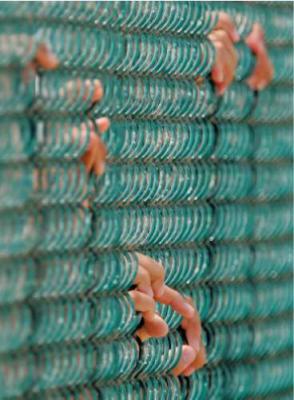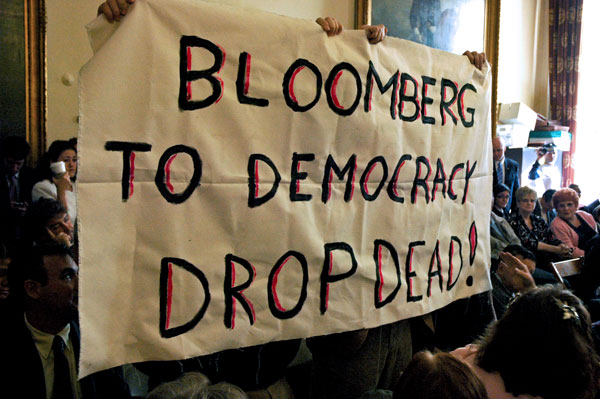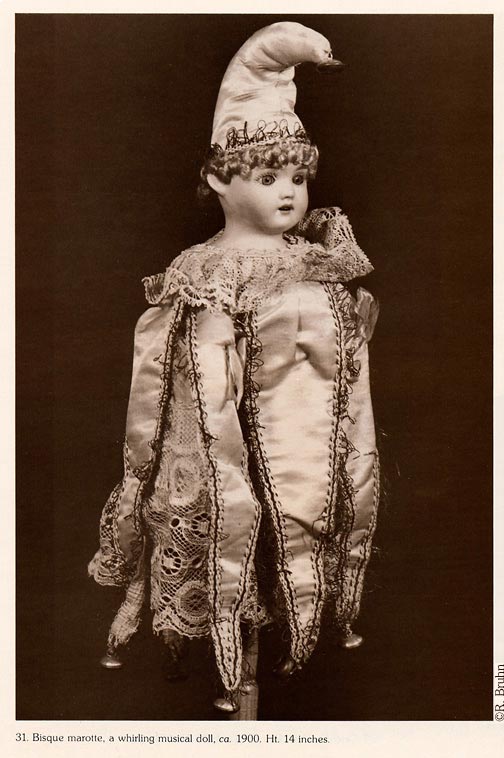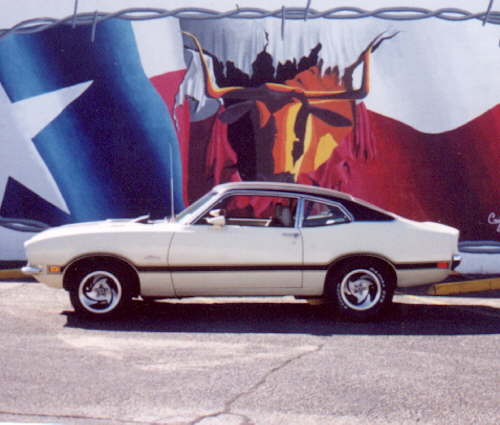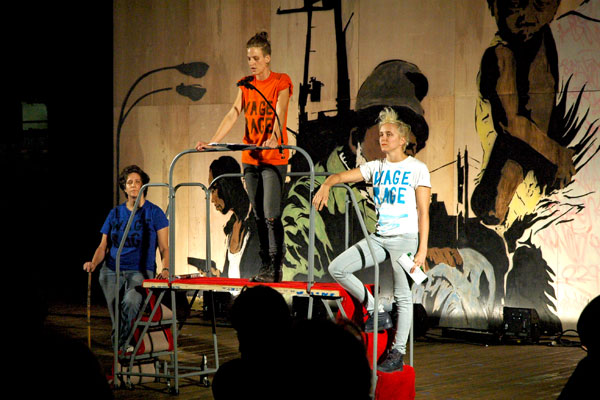
W.A.G.E. RAGE from the speakers' platform in the Armory Drill Hall
Creative Time's 2008 project, "Democracy in America: The National Campaign", was a remarkable achievement on a national scale, and it all came together in our town this past September. I wouldn't know where to start if I tried to address everything I saw on visits over two days, but I can say a few things about its general success, at least as I see it.
For starters, this is the kind of investment in public art that, unlike so many that are imposed upon us, could really make a difference to both a huge number of artists and a very large public. Also, it probably cost New York something less than the $15 million the Public Art Fund spent on Olafur Eliasson's surprisingly-lame "New York City Waterfalls". Thirdly, it involved the active and creative participation of thousands of people all over the country, from all sorts of backgrounds and they were exercising all kinds of talents. And finally, on a personal note, entirely aside from its undeniable intellectual and aesthetic appeal, I would say that any art project which can teach this art fan and political activist new things and radicalize him beyond his previous position must have gotten something very right.
Some of the liveliest elements of the entire Park Avenue Armory "Convergence Center" were to be found inside the Drill Hall. Throughout the week of the installation anyone could speak from a soapbox, but individuals and groups were also scheduled to perform or speak more formally at the east end of that magnificent vaulted shed. I heard parts of only a few segments in either format, but on the night of Saturday, September 27, I was there for addresses, in intense and reasoned argument, by some of the people of W.A.G.E. [Working Artists and the Greater Economy]. The words we heard then will some day be described as marking the moment when the gloves came off and artists in America began to be free.
Their website says that the group "works to draw attention to economic inequalities that exist in the arts and to resolve them", and their fundamental argument was expressed in some of the statements we heard that Saturday, beginning with these notes which I've made with the help of the video available by Creative Time on vimeo:
"It seems apt that W.A.G.E. is here [as the world's financial systems fall - Ed.] tonight to bring to light ongoing unjust fiscal practices in the art world"
[the speaker goes on to explain that institutions, should they choose to exhibit their work, don't pay artists the costs for the exhibition, don't pay their lecture fees, don't pay fees for the reproduction of their images in their advertising materials, just for starters]
"Does this list sound absurd? It's long. What is absurd is to exclude artists from payment for their labor and for the reproduction and exhibition of their work, within an economic climate where it is socially acknowledged that payment is granted for services rendered."
[she added that it's also not absurd because there are many examples of artist fees being covered in other countries, and then she continued, guessing some listeners might respond that those countries may be socialist, or that they must have more funding than our private institutions]
"If capitalism is you bag or priority, I can't think of anything more capitalist than getting paid for your labor [italics mine]."
I'm sure you'll be hearing more about this movement, even if you don't become a part of it, and even if you don't go to the site, where there's much more about W.A.G.E. and CARFAC, the Canadian artist-run organization which has been so successful.
We love creative time, and we love Creative Time.
